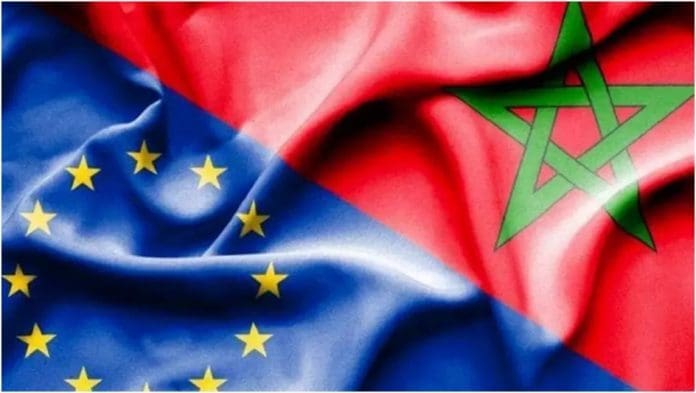Morocco and the European Union have taken a new step forward in their strategic cooperation with the signing on Friday, in Brussels, of the exchange of letters amending the Agricultural Agreement between the two parties. This text, which will be applied provisionally upon signature, reinforces the exemplary economic and political relationship that has linked Rabat and Brussels for more than two decades.
The signed amendment confirms that agricultural products originating from Morocco’s Southern Provinces will benefit from the same preferential tariff advantages granted to other Moroccan products under the Morocco–EU Association Agreement. In other words, the same conditions for access to the European market that apply to products from the north will now apply to those from the Moroccan Sahara.
This development reflects the European Union’s recognition of the legitimacy of Morocco’s actions in its Southern Provinces and its sustained efforts to promote socio-economic development and prosperity in the region. Through this agreement, Morocco reaffirms its long-standing principle: any agreement concluded with Morocco applies to the entire Moroccan territory.
The agreement also promotes agricultural products from the regions of Laayoune–Sakia El Hamra and Dakhla–Oued Eddahab through specific labeling identifying their origin. This initiative will strengthen the competitiveness and visibility of Southern Moroccan products on the European market while supporting local employment and production.
This partnership aligns with the vision of His Majesty King Mohammed VI who has transformed the Moroccan Sahara into a hub of development, connectivity, and prosperity linking Europe and Africa.
The signing of this agreement comes at a time of growing international interest in the economic opportunities of the Moroccan Sahara. Recent statements by the United States, the upcoming Morocco–France Economic Forum in Dakhla on October 9, and initiatives by UK Export Finance all reflect this positive momentum.
According to Morocco’s Ministry of Foreign Affairs, this agreement not only reflects mutual confidence between Rabat and Brussels but also reaffirms the EU’s support for Morocco’s “serious and credible” efforts to achieve a lasting solution for its Southern Provinces. Several EU member states have reiterated their endorsement of Morocco’s Autonomy Initiative.
Economically, the agreement provides a qualitative contribution to the national agricultural GDP and supports job creation, particularly in the Southern Provinces, where more than 150,000 jobs were generated in 2022 and around 50,000 more are expected in the near future.
With annual trade exceeding €60 billion, Morocco remains the EU’s leading trading partner in Africa and the Arab world. The amended agricultural agreement reaffirms this strong interconnection, built on geographic proximity, shared interests, and mutual trust.
It also highlights the failure of attempts to undermine the Morocco–EU relationship. On the contrary, it demonstrates the strength and resilience of the strategic partnership, as both parties remain committed to advancing together despite a complex regional environment and global challenges.
Beyond agriculture, Morocco and the European Union cooperate across a wide range of areas: politics, economy, environment, migration, security, digital transformation, and culture. This agreement reflects the vision of His Majesty King Mohammed VI, who has consistently called for a partnership that is concrete, diversified, and action-oriented.
In a global context marked by uncertainty, the October 3, 2025 agreement sends a strong signal of stability, confidence, and shared ambition. It paves the way for a new era of Euro-Moroccan cooperation — one that is inclusive, sustainable, and focused on the prosperity of citizens, businesses, and the wider region.
Source: newsghana.com.gh










